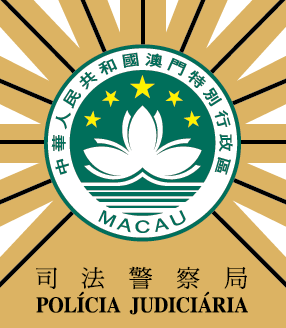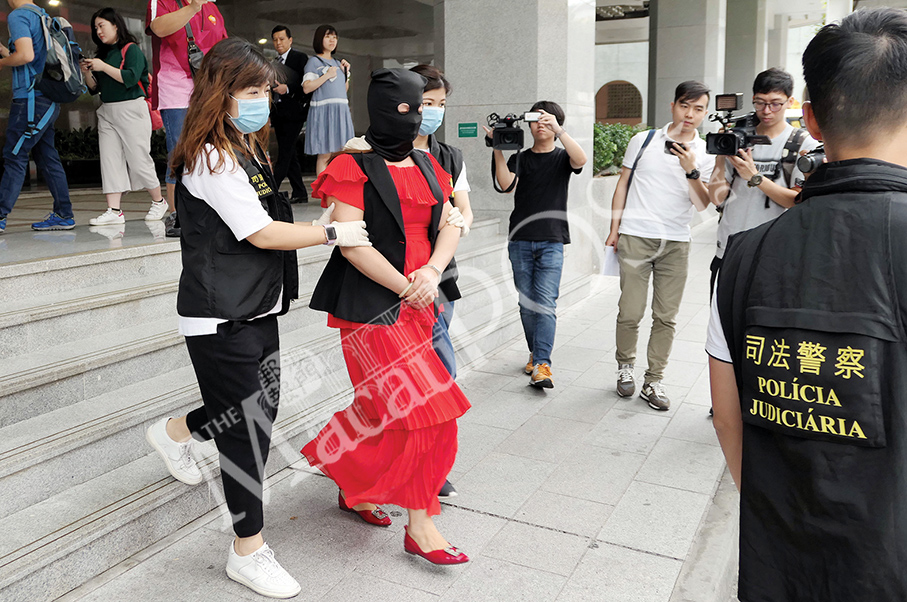The Health Bureau (SSM) said yesterday that those who leave home for work will no longer be required to undergo regular nucleic acid tests (NATs) after Macau returns to its normalised COVID-19 prevention and control period next Monday.
In addition, the government’s current mandatory daily nucleic acid tests for those in four high-risk key occupations, namely cleaning staff, food deliverers, public bus drivers and taxi drivers, and indoor renovation workers, will no longer be carried out from Monday next week.
Leong Iek Hou, who heads the Communicable Disease Prevention and Control Division of the Health Bureau, made the remarks during yesterday evening’s daily press conference by the Novel Coronavirus Response and Coordination Centre.
During the current six-day COVID-19-prevention stabilisation period, which started at 00:00 a.m. on Tuesday and is scheduled to end at 11:59 p.m. on Sunday, all those who leave home for work but are not in key occupations are required to undergo a nucleic acid test every three days, while those in the four key occupations are required to undergo a test every day.
The current stabilisation period came after a 10-day COVID-19-control consolidation period during which Macau’s latest outbreak that began on June 18 was subsiding.
Those in various occupations had been listed as high-risk key groups of people, indicating that they had a higher probability of having been infected with COVID-19, subject to a mandatory daily nucleic acid test since early last month when Macau was being hard hit by the COVID-19 outbreak.
Some of the occupations have gradually no longer been listed as high-risk key groups of people since last week, namely property management staff, security staff, restaurant staff, live-out domestic helpers, and construction-site workers. Since Tuesday’s commencement of the current stabilisation period, high-risk key groups of people subject to a mandatory daily nucleic acid test currently comprise four occupations, namely cleaning staff, food deliverers, public bus drivers and taxi drivers, and indoor renovation workers.
Leong underlined during yesterday’s press conference that Macau is still going through a post-outbreak stabilisation period because of which the government will continue its mandatory nucleic acid testing for those in high-risk key occupations, and all others who leave home for work, through Sunday when the stabilisation period is scheduled to end.
Leong reaffirmed that if Macau’s COVID-19 situation remains stable, the city will return to its normalised COVID-19 prevention and control period on Monday as scheduled when the government’s mandatory nucleic acid testing for those in high-risk key occupations, namely cleaning staff, food deliverers, public bus drivers and taxi drivers, and indoor renovation workers, and all the others who leave home for work, she said, will no longer be implemented.
Strengthened regular testing for key occupations after Macau returns to normalised period
Leong also underlined that after Macau returns to its normalised COVID-19 prevention and control period, i.e., the return to the situation before the outgoing outbreak that began on June 18, the government will continue with its regular mandatory nucleic acid testing for those working in key occupations that are potentially subject to a higher risk of getting infected with COVID-19, the same arrangements as normal before June 18, such as health workers, and those working in the frozen food sector. Leong reaffirmed that they had always been subject to regular mandatory nucleic acid tests before June 18.
Leong said that the Macau Health Bureau will assess and decide whether additional occupations should be newly listed as key occupations that will be subject to regular nucleic acid tests and their respective testing frequency during the city’s normalised COVID-19 prevention and control period, in line with the suggestions made by the Protocol for COVID-19 Prevention and Control (9th Edition) published by the Joint COVID-19 Prevention and Control Mechanism of the State Council, while the bureau will make its own assessment after considering Macau’s real situation.
Leong said that the government’s strengthened regular nucleic acid testing drive for those working in key occupations aims to detect possible cases in the community as early as possible in case the novel coronavirus has been imported into Macau.
2nd booster jabs start
Meanwhile, Leong also announced that the local government has now launched a programme of administering a second booster dose of COVID-19 vaccines, and eligible potential vaccinees can now book a second booster jab on the Health Bureau’s COVID-19 vaccination online appointment system.
The Macau government’s COVID-19 booster vaccination programme covers all those aged 18 or over who have been fully (twice) inoculated with inactivated vaccines or mRNA vaccines.
Both types of COVID-19 vaccines currently available in Macau, China’s Sinopharm inactivated vaccine and Germany’s BioNTech mRNA vaccine, are two-dose vaccines, i.e., requiring two jabs to develop basic full immunity. Macau started administering a third COVID-19 dose as a booster jab late last year.
Since the launch of third COVID-19 jabs, potential vaccinees could receive a third dose as their booster jab at least six months after having been fully (twice) vaccinated against COVID-19.
Leong said yesterday that those aged between 18 and 59 who are not potentially subject to a higher COVID-19 risk are now eligible to receive a fourth COVID-19 dose as their second booster jab after receiving their first booster jab also at least six months ago.
According to the new measure, Leong said, all other individuals who are potentially subject to a higher COVID-19 risk, such as all those aged 60 or over, those aged between 18 and 59 living in residential care homes for senior citizens or rehabilitation care homes, and those aged 12 or over who are moderately or severely immunocompromised, are now eligible to receive a third dose as their first booster jab at least three months after having been fully (twice) vaccinated against COVID-19, a change from a minimum of a six-month interval hitherto.
According to Leong, those who are potentially subject to a higher COVID-19 risk are now eligible to receive a fourth dose as their second booster jab after receiving their first booster jab at least three months ago.
According to Leong, moderately or severely immunocompromised individuals include 1) cancer patients who are receiving chemotherapy or radiotherapy; 2) those who have received an organ transplant and are taking medicine to suppress the immune system; 3) those who have received a stem cell transplant within the last two years or are still taking medicine to suppress the immune system; 4) those affected by moderate or severe primary immunodeficiency (such as DiGeorge syndrome and Wiskott-Aldrich syndrome); 5) those with advanced or untreated HIV infection; and 6) those who are receiving active treatment with high-dose corticosteroids or other drugs that may suppress the immune response, such as those suffering systemic lupus erythematosus (SLE, or simply known as lupus).
Leong noted that the National Health Commission (NHC) recommends that those who have been fully inoculated with COVID-19 inactivated vaccines choose a different type of vaccine for their first and second booster jabs with the aim of generating stronger immunity, because of which the Macau Health Bureau recommends that those who have been fully inoculated with inactivated vaccines choose mRNA vaccines for their first and second booster shots.
Leong said that the Health Bureau recommends that those who have received an inactivated jab as their first booster shot after having been fully inoculated with inactivated vaccines choose an mRNA jab for their second booster shot.
According to Leong, latest research data from the World Health Organisation (WHO) indicates that a second COVID-19 booster jab can effectively raise the antibody levels and thereby reduce the probability of suffering “breakthrough” infection. Leong also noted that more evidence worldwide shows that COVID-19 immunity induced by a first booster jab will wane over time, which is why “breakthrough” infection occurs despite having received a third dose as a booster jab.
Consequently, Leong said that the local government is urging high-risk individuals to receive a second booster jab as soon as possible, with the aim of reducing the probability of having death cases in case Macau is hit by a COVID-19 outbreak again in the future.
The outgoing outbreak that began on June 18 has resulted in six fatalities, all of them senior citizens inflicted with a string of chronic diseases.

Leong Iek Hou, who heads the Health Bureau’s (SSM) Communicable Disease Prevention and Control Division, addresses yesterday’s press conference about the city’s COVID-19 situation. Photo: GCS






